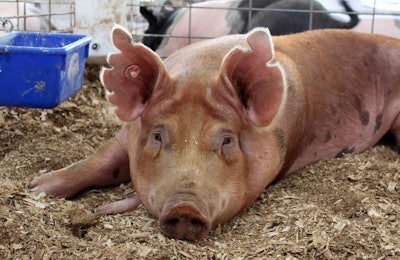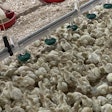
An electronic medicine book for pigs (eMB-Pigs) is now available in the UK. With eMB-Pigs, farmers can record their on-farm antibiotic use. The eMB-Pigs forms part of a larger effort by the UK National Pig Association (NPA) and other agencies to address public concern about the potential for antibiotic-resistant bacteria to evolve in animals and then spread to humans.
“Although antibiotic resistance in humans is largely caused by over-use and misuse of antibiotics in human medicine, the British pig industry has a duty to ensure it does not contribute to the problem,” Dr. Georgina Crayford, NPA senior policy adviser, said in a press release.
Currently, more that 18,000 sows and 660,000 growing or finishing pigs are represented in eMB-Pigs, according to the Agriculture and Horticulture Development Board. Those animals represent nearly one fourth of the British finishing herd.
Producers can replace their current hard-copy medicine records with eMB-Pig or enter their total antibiotic use records into the system. Once enough data has been collected, eMB-Pigs will allow producers to compare their own usage rate to anonymized information from their peers. This data will also be available to the Veterinary Medicines Directorate, a UK government agency charged with monitoring animal health and welfare.
The information acquired with eMB-Pigs will fill a gap in the British data on antibiotics use, and answer questions about how the use of the medicines in pig production compares to other sectors.
“Overall sales of antibiotics for use in livestock in the United Kingdom sit mid-range compared to other European Union countries,” said Crayford. “We acknowledge the current perception that antibiotic use in our pig industry may be higher than in some other countries, but we don’t have any data to demonstrate what our actual on-farm usage is, hence the need for action.”

















